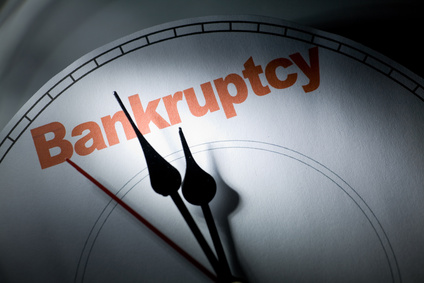In an interview in today’s Irish Independent, the Dublin City Sheriff Brendan Walsh hit out at the proposed reform of Irish insolvency law by calling it unfair because it is ‘very debtor friendly’. He takes a dim view of the extensive and detailed proposals of the Law Reform Commission (LRC) relating to personal indebtedness.
While he recognises that many Irish people have debts that they will never realistically be able to repay, he cringes at the idea of debt forgiveness claiming that it is not just the banks and other big credit houses who will suffer (if debt forgiveness is legislated for), but also many ordinary small businesses and self employed people such as tradesmen, small builders, architects and other professionals who will be left without payment by defaulting debtors who may be ‘forgiven’.
Nevertheless, the new Irish government – now expected to be either a minority Fine Gael government (possibly supported by some like minded independent deputies) or a coalition of Fine Gael and Labour – will almost certainly implement the recommendations of the LRC in relation to personal debt (Personal Debt Management and Debt Enforcement report published in December 2010), given the pressure coming from the European Union for Ireland to enact modern enlightened insolvency legislation based on the ‘fresh start’ philosophy on which much of the best European and American personal insolvency legislation is based. Indeed the new government may also have to very quickly address the draconian and utterly out of date Bankruptcy Act 1988.
The LRC has done the incoming administration a big favour in that they have identified the most urgent and critical reforms needed relating to the Bankruptcy Act 1988. In fact the proposed new act (currently entitled Draft Personal Insolvency Bill 2010) and the old Bankruptcy Act 1988 (needing urgent reform and amendment) are so intricately intertwined that it makes no sense to enact the new act without simultaneously (or as contemporaneously as is possible) amend the old act.

Briefly the changes to the Bankruptcy Act 1988 that are proposed as being urgently needed are:
- Minimum level of Euro 50,000 to bring creditor’s petition of bankruptcy. Already explored in a previous article.
- Removal of requirement of debtor’s available estate. A debtor will no longer have to have assets of at least Euro 1,920 to petition for his or her own bankruptcy; instead the court to consider the matter and perhaps stay proceedings to allow the debtor to attempt a Debt Settlement Arrangement (DSA) – as detailed in the new draft act.
- Pre-Action Protocol. Applies to a creditor’s petition for bankruptcy.This would oblige debtor and creditors to investigate other possible solutions such as a DSA before embarking on the bankruptcy route. The court would have the power to stay bankruptcy proceedings.
- Stay of proceedings to consider alternative means. Applies to a debtor’s petition for bankruptcy. Similar obligations and powers as under the Pre-Action Protocol.
- Conditions of automatic bankruptcy discharge. Would allow for discharge before all of the bankrupt’s property has been realized.
- Automatic discharge period reduced to three years.
- Court may order payments for up to five years.
- Objections to discharge by Official Assignee/Personal Insolvency Trustee. Relates to the grounds for objecting to discharge and the court’s powers regarding discharge.
- Removal of requirement to pay expenses, fees etc before discharge.
- Reduction in number of priority debts. Certain debts would no longer be priority debts e.g. Revenue debts.
- Restrictions and disqualifications. Relates to sanctions against dishonest and/or irresponsible bankrupts.
- Exempted assets to ensure reasonable living standard.
- Licensing of Personal Insolvency Trustee acting in bankruptcy. New licensing system overseen by a (new) Debt Settlement Office.
Can the incoming administration implement the changes needed to old legislation and introduce reforming personal debt laws? How much weight (if any) will they give to the conservative views of such as the former Fianna Fail Justice Minister Dermot Ahern (who stated that there would be no debt forgiveness for ordinary citizens) or to the latest insensitive pronouncement of the Sheriff? More to the point, how long will it take Fine Gael (et al) to decide to do something?